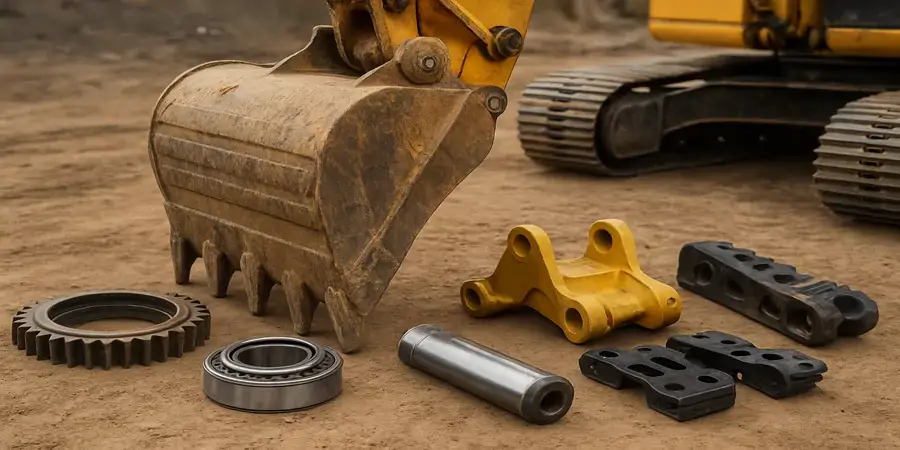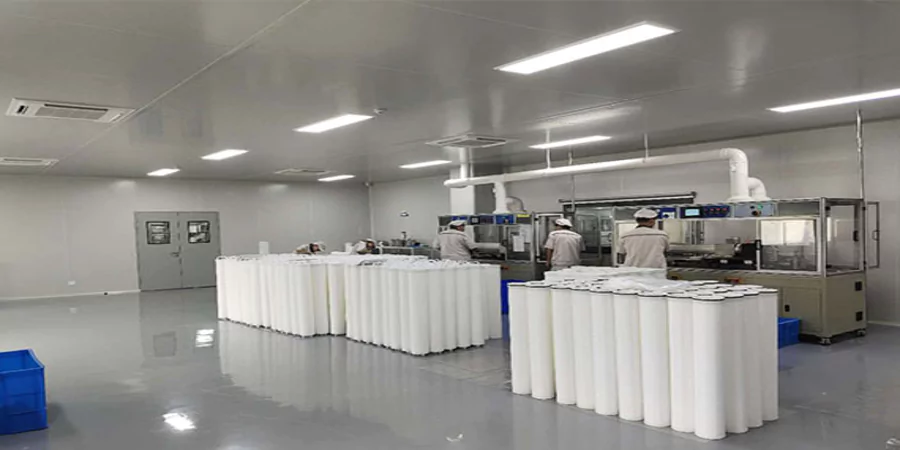In construction, mining, and earthmoving industries, the reliability of your machinery can make or break a project.
Excavators, being workhorses of these sectors, need parts that can handle heavy loads, harsh environments, and long hours. Using substandard components can lead to costly breakdowns, unsafe conditions, and reduced productivity. Knowing how to identify high-quality excavator parts ensures your equipment runs efficiently and stands the test of time.
Understanding the Importance of Quality Excavator Parts
Excavator parts are subjected to extreme stress, constant friction, and unpredictable environmental conditions. From the hydraulic systems to the undercarriage, each component must meet strict performance and durability standards.
High-quality parts offer:
- Longer Service Life: Reducing replacement frequency and downtime.
- Consistent Performance: Maintaining operational efficiency across projects.
- Better Safety: Minimising the risk of mechanical failures on site.
Investing in quality parts not only protects your machine but also your project timelines and bottom line.
Check for OEM or Reputable Aftermarket Brands
When sourcing parts, start by confirming whether they are Original Equipment Manufacturer (OEM) components or from a trusted aftermarket supplier.
- OEM Parts: Manufactured by the company that built your excavator, ensuring exact fit and performance.
- Quality Aftermarket Parts: Produced by reputable companies that meet or exceed OEM specifications, often at a more competitive price.
Avoid generic or unbranded parts, as these may lack the precision, material quality, and testing required for heavy-duty use,
Inspect the Materials and Build Quality
High-quality excavator parts are made from materials designed to withstand intense wear and tear.
- Metals: Look for forged, heat-treated, or high-grade steel components for strength and resilience.
- Seals and Hoses: Should be made from materials resistant to oil, heat, and pressure.
- Welding: Should be smooth, consistent, and free of cracks or weak points.
A visual inspection can reveal a lot about the part’s durability, especially when it comes to moving components and load-bearing structures.
Evaluate the Precision and Fit
Poorly manufactured parts can cause misalignments, vibrations, and premature wear.
- Tolerances: Quality parts are made to exact specifications for a perfect fit.
- Ease of Installation: A well-made part should slot into place without forcing or excessive adjustments.
If a part requires heavy modifications to fit, it’s a sign it may not meet your machine’s design requirements.
Ask About Testing and Certification
Reliable manufacturers subject their excavator parts to rigorous testing before release.
- Load and Stress Testing: Ensures components can handle operational demands.
- ISO or Industry Certifications: Indicates compliance with recognised quality and safety standards.
Don’t hesitate to request documentation or proof of quality assurance from the supplier.
Assess Supplier Reputation and Support
A good part is only as valuable as the company behind it.
- Reviews and Testimonials: Look for consistent positive feedback from other operators and contractors.
- Warranty: Quality parts are often backed by a reasonable warranty period.
- Customer Service: A reputable supplier will provide technical support, installation guidance, and after-sales service.
Working with a trusted supplier can save you time and money in the long run.
Be Wary of Deals That Are Too Good to Be True
While cost is a factor, extremely cheap parts often compromise on materials, manufacturing, or quality control. Short-term savings can lead to long-term expenses due to frequent replacements, downtime, or even equipment damage. Always balance price with the expected lifespan and reliability of the part.
Final Thoughts
Spotting high-quality excavator parts comes down to knowing what to look for — from brand reputation and material quality to fit, certifications, and supplier support. By taking the time to verify these factors, you can keep your machinery in top condition, minimise costly breakdowns, and ensure your projects run smoothly.
A well-maintained excavator is an investment that pays for itself through reliability, safety, and performance. Choosing quality parts is one of the smartest ways to protect that investment.
















